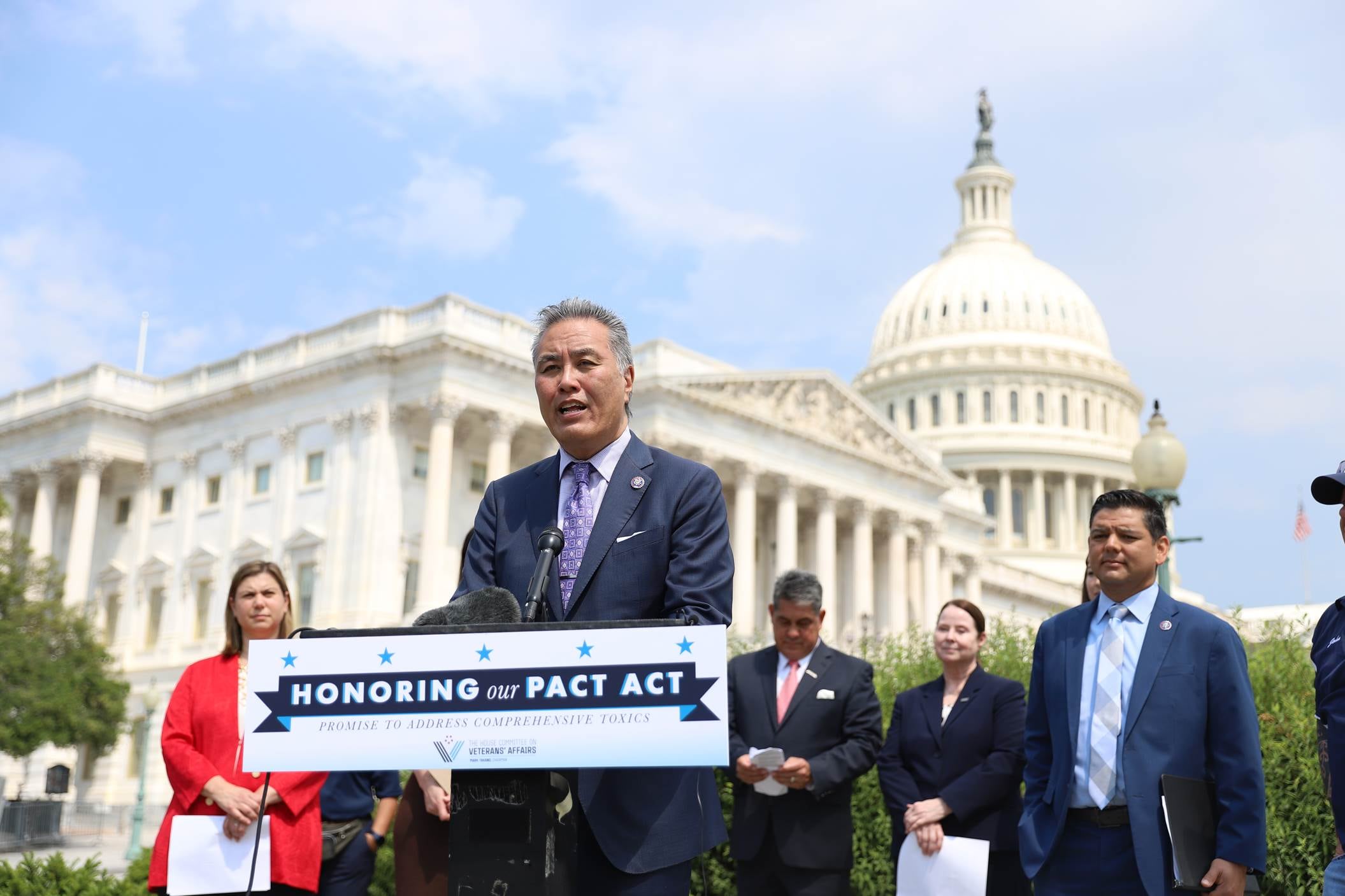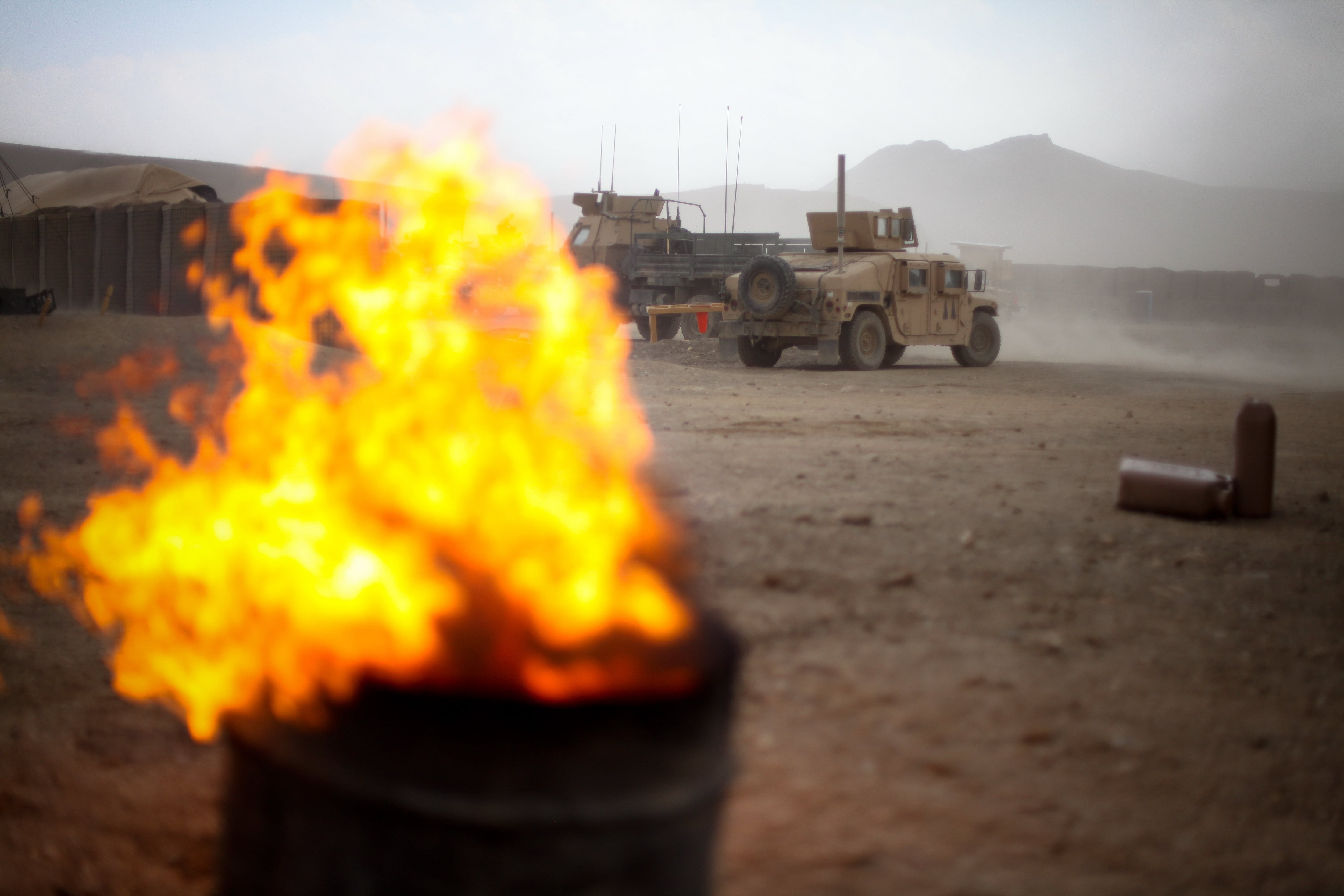Veterans exposed to harmful burn pit smoke while serving in certain overseas war zones will for the first time get presumptive disability benefits status under a new announcement by the Department of Veterans Affairs on Monday.
The move comes after years of lobbying from veterans advocates and months of legislative pressure from Capitol Hill on the issue. In a statement, VA Secretary Denis McDonough called the move “the right decision” to recognize the sacrifice of veterans.
Initially, the new move will cover only veterans suffering from three illnesses — asthma, rhinitis and sinusitis — and only if they manifested within 10 years of a veteran’s overseas service.
For now, the new presumptive benefits status does not include any rare cancers that numerous veterans groups have said have occurred in alarmingly high rates among veterans exposed to overseas burn pits. VA officials said more conditions may be added in the future.
RELATED

Presumptive benefits status allows veterans applying for disability benefits to forgo certain paperwork and medical exams used to prove their injuries and illnesses are directly connected to their time in the military.
Similar status has been granted in the past for illnesses related to Agent Orange exposure during the Vietnam War, where widespread use of the chemical defoliant was well-known but difficult to prove in specific locations decades later.
Areas and time periods covered include the Southwest Asia theater of operations (Iraq, Saudi Arabia, Bahrain, Qatar and more) from August 1990 to the present and Afghanistan, Uzbekistan, Syria or Djibouti from Sept. 19, 2001 to the present.
An internal review by VA officials determined that “there was sufficient evidence to presume that veterans have been exposed to particulate matter” during service in those locations.
In the past, Veterans Affairs officials have estimated more than 3.5 million troops were exposed to the toxic smoke from burn pits during overseas deployments over the last 20 years. But since few overseas combat sites routinely monitored air quality and chemical exposure of troops, directly linking those pits to health issues later in life has proven difficult.
RELATED

Only about 241,000 veterans have signed up for the department’s Airborne Hazards and Open Burn Pit Registry, designed to track illnesses related to burn pit exposure and ease access to veterans benefits.
Advocates have criticized VA frequently rejecting claims made by veterans suffering from rare respiratory illnesses and cancers believed related to burn pit smoke, insisting they could be more accommodating with those cases.
But VA officials have insisted for years that any such move would require congressional action. Earlier this year, following the introduction of several high-profile measures to address the problem, McDonough said he would re-examine VA policies.
Officials did not say how much granting the new claims may cost, or when payouts will begin.
The department will reach out to veterans and survivors potentially eligible for the new disability payouts. More information on the process is available on the VA web site.
In a statement, House Veterans’ Affairs Committee Chairman Mark Takano, D-Calif., praised VA’s move but added “there are still far too many veterans left behind who cannot afford to wait much longer. We need to pass comprehensive legislation now to ensure that all veterans can access the care and benefits they’ve earned.” Takano has sponsored a bill which would grant even broader presumptive benefits to burn pit victims and other veterans who faced toxic exposure contamination while in the military.
Senate Veterans’ Affairs Committee Chairman Jon Tester, D-Mont., similarly praised the news.
“VA Secretary McDonough has made clear he is committed to working with Congress on a comprehensive toxic exposure framework that is timely, grounded in science, transparent, and responsive to the needs of every man and woman impacted by the effects of toxic exposure,” he said in a statement. “I encourage every eligible veteran to apply for their earned benefits as quickly as possible.”
Leo covers Congress, Veterans Affairs and the White House for Military Times. He has covered Washington, D.C. since 2004, focusing on military personnel and veterans policies. His work has earned numerous honors, including a 2009 Polk award, a 2010 National Headliner Award, the IAVA Leadership in Journalism award and the VFW News Media award.



